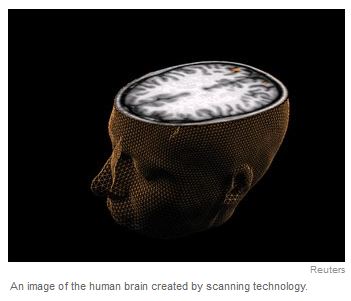Science Tackles Mystery of the Teenage Brain
[Source: New York Times / International Herald Tribune]
 LONDON — Science may have split the atom and put a man on the moon but it has yet to solve the mysteries of the teenage brain.
LONDON — Science may have split the atom and put a man on the moon but it has yet to solve the mysteries of the teenage brain.
A research team at Cambridge University plans to fix that by scanning 300 young people, aged 14 to 24, to determine how their brains change as they grow older.
In a study that could help identify the emergence of mental disorders in young adults, the subjects will also be tested on their inclination toward impulsive and risk-taking behavior.
Advances in M.R.I. scanning technology will allow the researchers to study gradual changes as the brain adapts to powerful hormonal signals as individuals mature, helping them to control impulsive behavior.
“Arguably we’ve all been there and it’s a very awkward and complex and confusing time of life,” Dr. Becky Inkster, a Cambridge neuroscientist, told the BBC.
“So by the use of imaging and other tools we can really tap into these features of the adolescent brain and understand how they develop over time as they become a young adult,” she said.
Read the Rest of this Article on the New York Times / International Herald Tribune
PediaStaff is Hiring!
All JobsPediaStaff hires pediatric and school-based professionals nationwide for contract assignments of 2 to 12 months. We also help clinics, hospitals, schools, and home health agencies to find and hire these professionals directly. We work with Speech-Language Pathologists, Occupational and Physical Therapists, School Psychologists, and others in pediatric therapy and education.
